Paris Olympics caught in between great power rivalry
Lianhe Zaobao China news editor Yang Danxu notes that this year’s Olympics has been more politicised than ever before, with accusations thrown between big powers, emulating the rivalry in other areas such as the trade, technology and auto sectors.
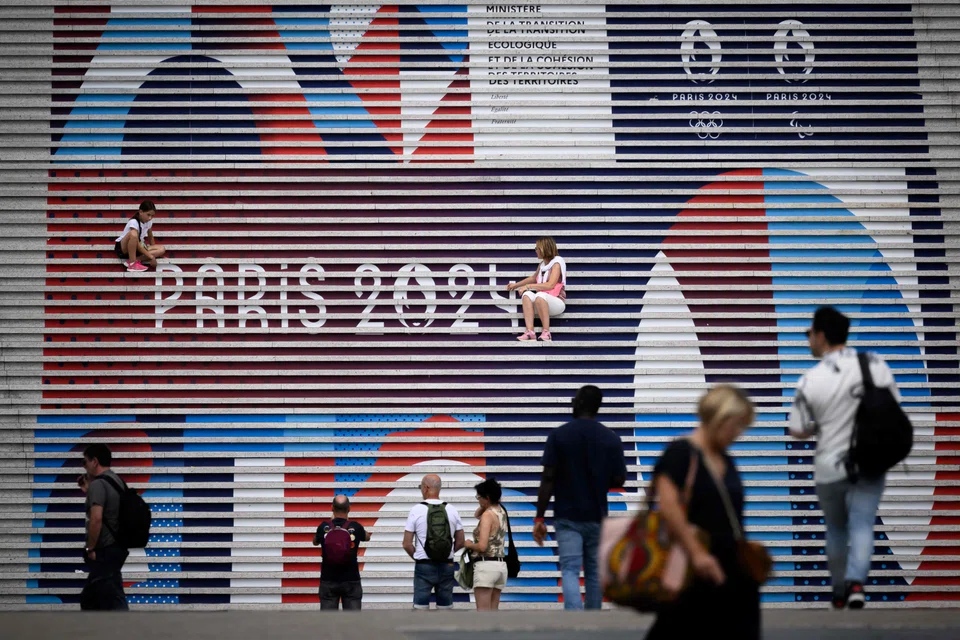
On the last day of the swimming events at the Paris Olympics, the Chinese swimming team broke the US’s 60-year dominance in the men’s 4x100m medley relay, winning a momentous gold medal.
Chinese media described the race as “the most exciting match for the Chinese swimming team in recent days”, with 20-year-old Pan Zhanle playing a crucial role in turning the tide for the Chinese team during the final leg.
US losing dominance
A few days ago, this young swimmer also won China’s first gold medal in the men’s 100m freestyle and broke the world record by clocking in 46.40 seconds — more than one second faster than the second place.
In a post-race interview, Pan said that he was ignored when he greeted his foreign competitors.
“We washed away our past humiliation! They looked down on us, but today I’ve finally beat them all,” he exclaimed, revealing a long-suppressed sense of pride.
The Chinese swimming team has faced immense pressure at the Olympics, enduring continuous doping accusations from Western media, far more drug tests than athletes from other countries and being snubbed by competitors both in and out of the pool.
... the gold medals in swimming have caused a stir in the West because swimming is one of their few remaining domains.
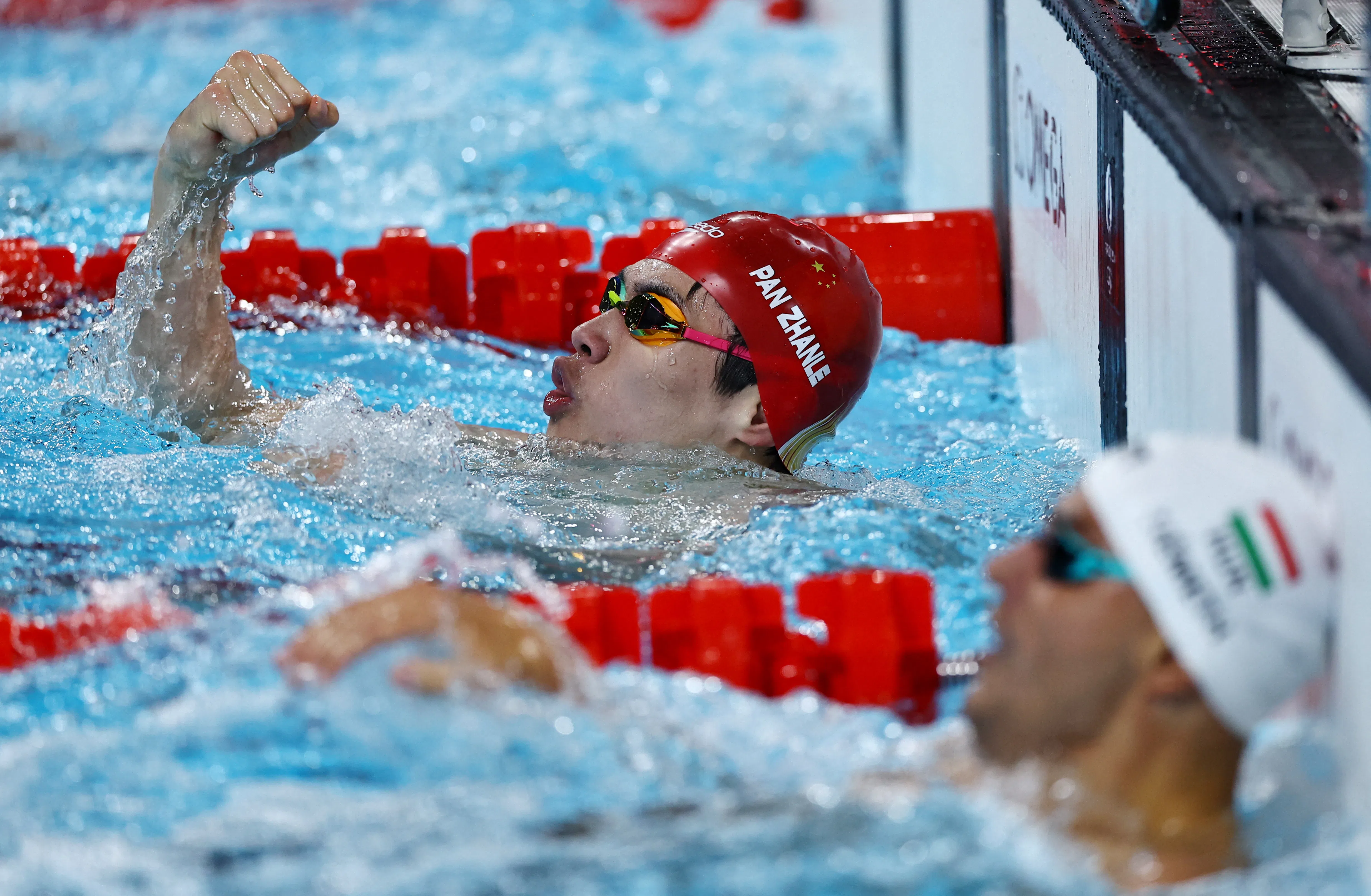
In almost every post-race interview, Chinese swimmers were questioned about doping, especially Pan after winning gold in the men’s 100m freestyle. Australian coach and commentator Brett Hawke even posted a video on social media saying that “it’s not humanly possible to beat that field by a body length”.
For the Chinese swimming team, which has been plagued by doping allegations, and for the Chinese people who have been following the Olympics, these two gold medals are undoubtedly the most uplifting results.
A post on social media platform X and circulated on Chinese social media is seen as the best response to these doubts: “To be honest, if China had such drugs that could help athletes break world records while evading all 40 tests in the past seven days, they would definitely give these drugs to their football team.”
Some people also believe that while China has won several gold medals in other sports such as table tennis and diving without any controversy, the gold medals in swimming have caused a stir in the West because swimming is one of their few remaining domains. The suppression of Chinese swimmers is essentially because the West cannot accept losing their dominance.
... the dispute between China and the US over the doping controversy shares several key themes with China-US competition in electric vehicles (EVs) and other areas: catching up, technology, rules and fairness.
Great power rivalry, even in sports
Given the issues with Russia’s and Israel’s participation, the Paris Olympics were described as the most politicised in years even before the opening ceremony, with the swimming events similarly shrouded in political clouds ahead of time.
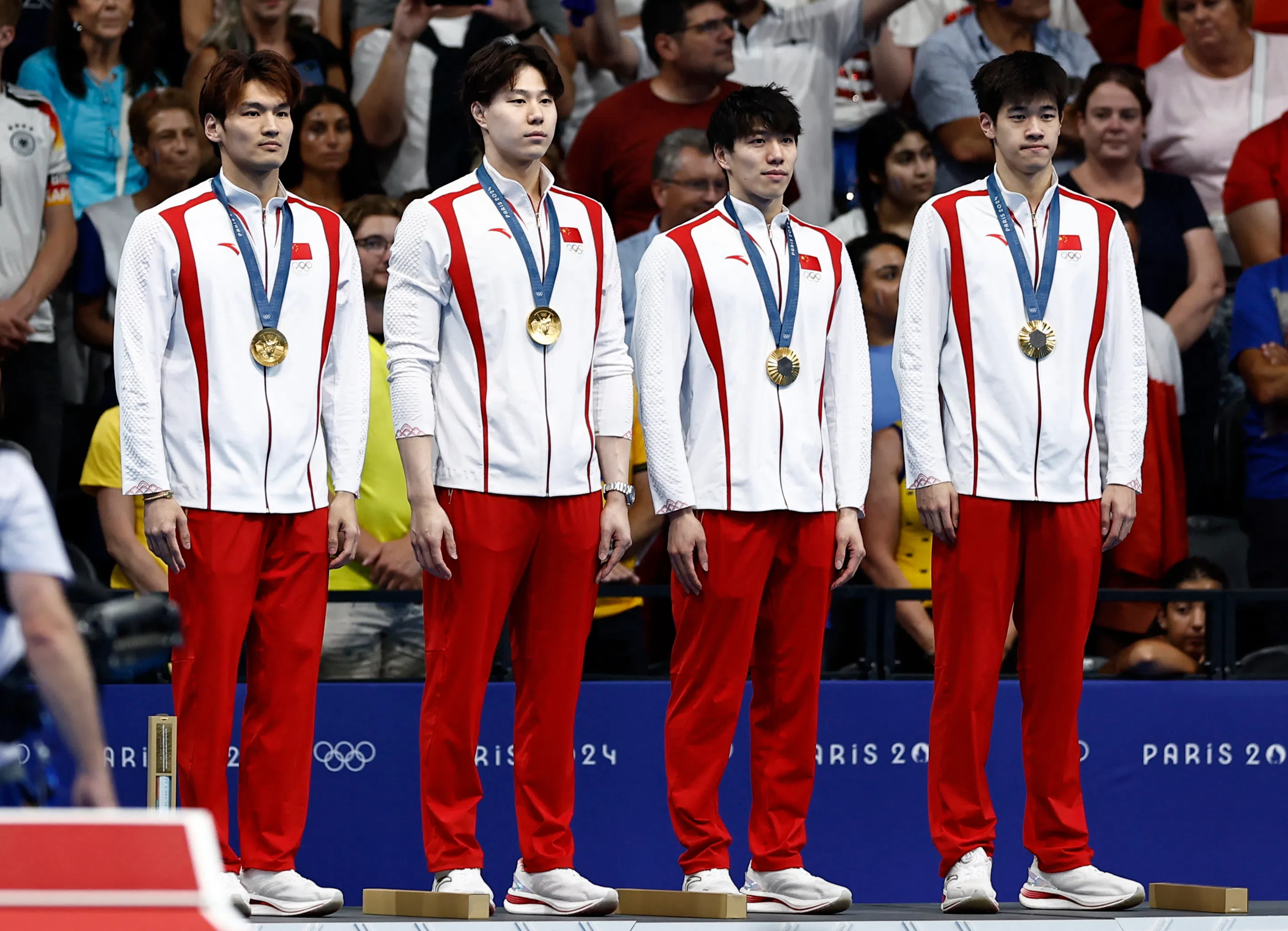
Since April this year, the US media has constantly hurled doping allegations at the Chinese swimming team. The athletes have been put in the spotlight amid the series of accusations, undergoing unusually frequent and stringent drug tests before and during the Olympics.
The World Anti-Doping Agency (WADA) was also accused of covering up the use of banned substances by Chinese swimmers, after they clarified that they tested positive after accidentally eating contaminated food. A bipartisan group in the US Congress even proposed a new bill to cut funding for WADA unless sweeping reforms are made.
The doping scandal involving Chinese swimmers may be highly controversial, but one thing is clear: great power rivalry is at play behind it all. WADA said in a statement released on 30 July: “... WADA has been unfairly caught in the middle of geopolitical tensions between superpowers but has no mandate to participate in that.”
In fact, the dispute between China and the US over the doping controversy shares several key themes with China-US competition in electric vehicles (EVs) and other areas: catching up, technology, rules and fairness.
It [the Olympics] also serves as a field for countries to demonstrate their overall strength and is often used as a political tool to boost national spirit and strengthen national unity.
Spirit of togetherness amid a politicised Olympics
Whether in Olympics swimming or the new energy sector, the US has traditionally been the leader, while China is rapidly closing the gap and even showing signs of surpassing the US.
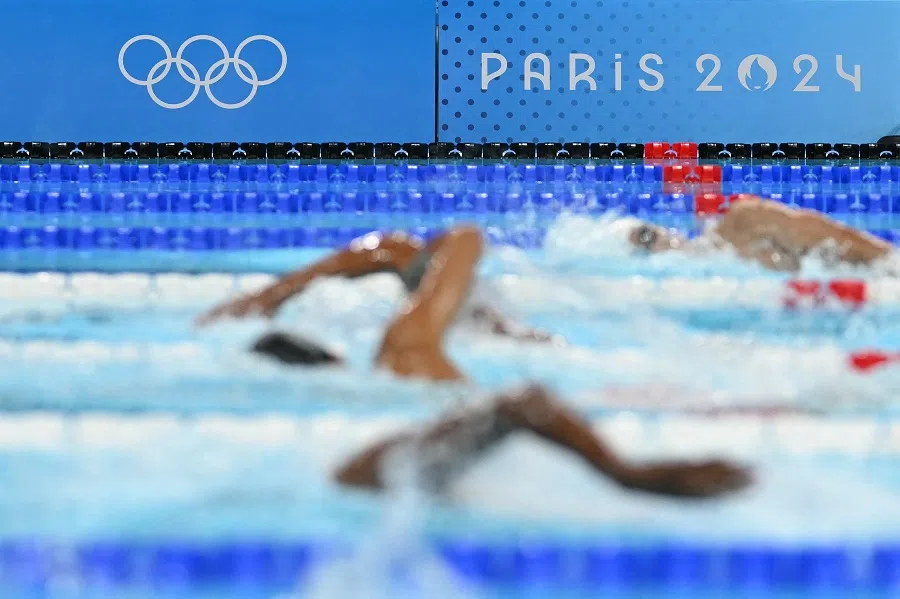
Both the improvement of swimmers’ performance and auto manufacturing capabilities are inseparable from science and technology — the US accused Chinese swimmers of using drugs to enhance their performance, undermining the rules of fair play on the field; and also imposed tariffs on Chinese EVs, citing the violation of rules through unfair subsidies.
Similar to the intense competition between China and the US in technology, the economy, military, diplomacy and ideology, Chinese athletes have dramatically improved their performance in areas where they were not traditionally dominant in, posing a significant challenge to the US.
At the Paris Olympics this year, Chinese tennis player Zheng Qinwen made a historical breakthrough and became the first Chinese and first Asian player to win the Olympic tennis singles gold, which is also seen as breaking the monopoly of the West.
... amid growing division in the world today and intensifying confrontation among different camps, it has become a luxury for the increasingly politicised Olympics to convey a spirit of togetherness.
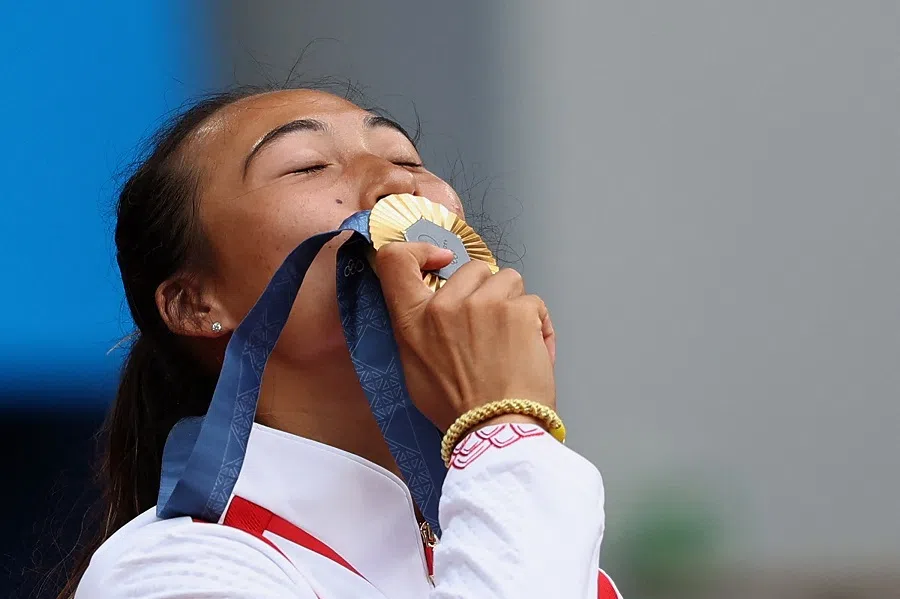
Where there is competition, there is back-and-forth struggle. After the conclusion of the swimming events, China launched a counterattack on the doping issue. The China Anti-Doping Agency released a statement on 6 August, accusing its US counterpart of double standards in handling the drug tests of US track and field athletes.
This clash is expected to continue, with the doping dispute between China and the US possibly extending to the Los Angeles Olympics four years later.
It is inherently difficult for the Olympic stage to be purely about sports. It is a platform where the world’s best athletes test the human limits and showcase their talents, and where legends are created. It also serves as a field for countries to demonstrate their overall strength and is often used as a political tool to boost national spirit and strengthen national unity.
Prior to the Tokyo Olympics in 2021, the world faced the Covid-19 pandemic. The word “together” was added to the Olympic motto to become “Faster, Higher, Stronger – Together”. However, amid growing division in the world today and intensifying confrontation among different camps, it has become a luxury for the increasingly politicised Olympics to convey a spirit of togetherness.
This article was first published in Lianhe Zaobao as “政治阴云笼罩巴黎奥运”.





![[Big read] When the Arctic opens, what happens to Singapore?](https://cassette.sphdigital.com.sg/image/thinkchina/da65edebca34645c711c55e83e9877109b3c53847ebb1305573974651df1d13a)